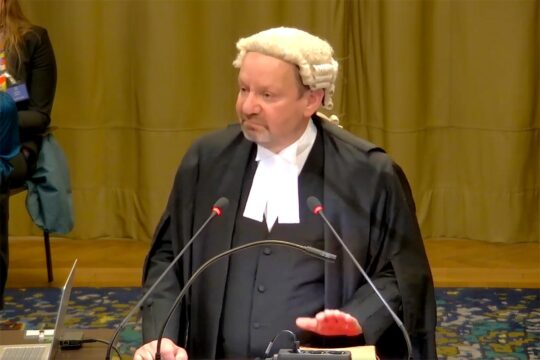A South Sudan court on Wednesday stopped the live feed of the opening of a treason trial against opposition leader Riek Machar that has raised fears of a return to civil war.
A fragile power-sharing deal between President Salva Kiir and Machar, his long-time rival, has been unravelling for months, threatening to return the young nation to a conflict that left 400,000 dead in the 2010s.
Machar was last month charged with treason and crimes against humanity over his alleged involvement in an ethnic militia's attack on a military base in March that the government said killed more than 250 soldiers.
Machar and seven co-accused were due to give opening statements on Wednesday.
The court ruled that the video feed -- which has been broadcasting earlier hearings live via internet -- should be cut to protect witnesses.
An AFP journalist in the courtroom said statements were read for four of the defendants -- not including Machar -- before the prosecution was granted an adjournment.
The case will continue on Friday.
Machar was suspended from his position as first vice-president in the unity government following the charges last month, having already spent months under house arrest.
His faction denies the accusations and says the trial is part of President Kiir's efforts to sideline the opposition and consolidate power.
The prosecution has said it will present "documentary and physical evidence, like signed operational orders" linking Machar and his co-defendants to the March attack against a government base in Nasir County, Upper Nile State, that was carried out by a militia known as the White Army.
In his opening statement, one of the co-accused, suspended petroleum minister Puot Kang Chol, said he had passed a message from Machar to the White Army, urging them not to fight.
The United Nations rights chief warned last week that South Sudan is on the brink of renewed war, as nearly 2,000 civilians have been killed in a surge of violence this year.
The UN also issued a report last month accusing the government of stealing billions of dollars in oil money since independence and providing almost nothing for essential services like health and education.
South Sudan gained independence from Sudan in 2011 but quickly fell into a five-year civil war.
A 2018 peace deal ended fighting but its leaders have repeatedly failed to hold elections or unify their armed forces.


